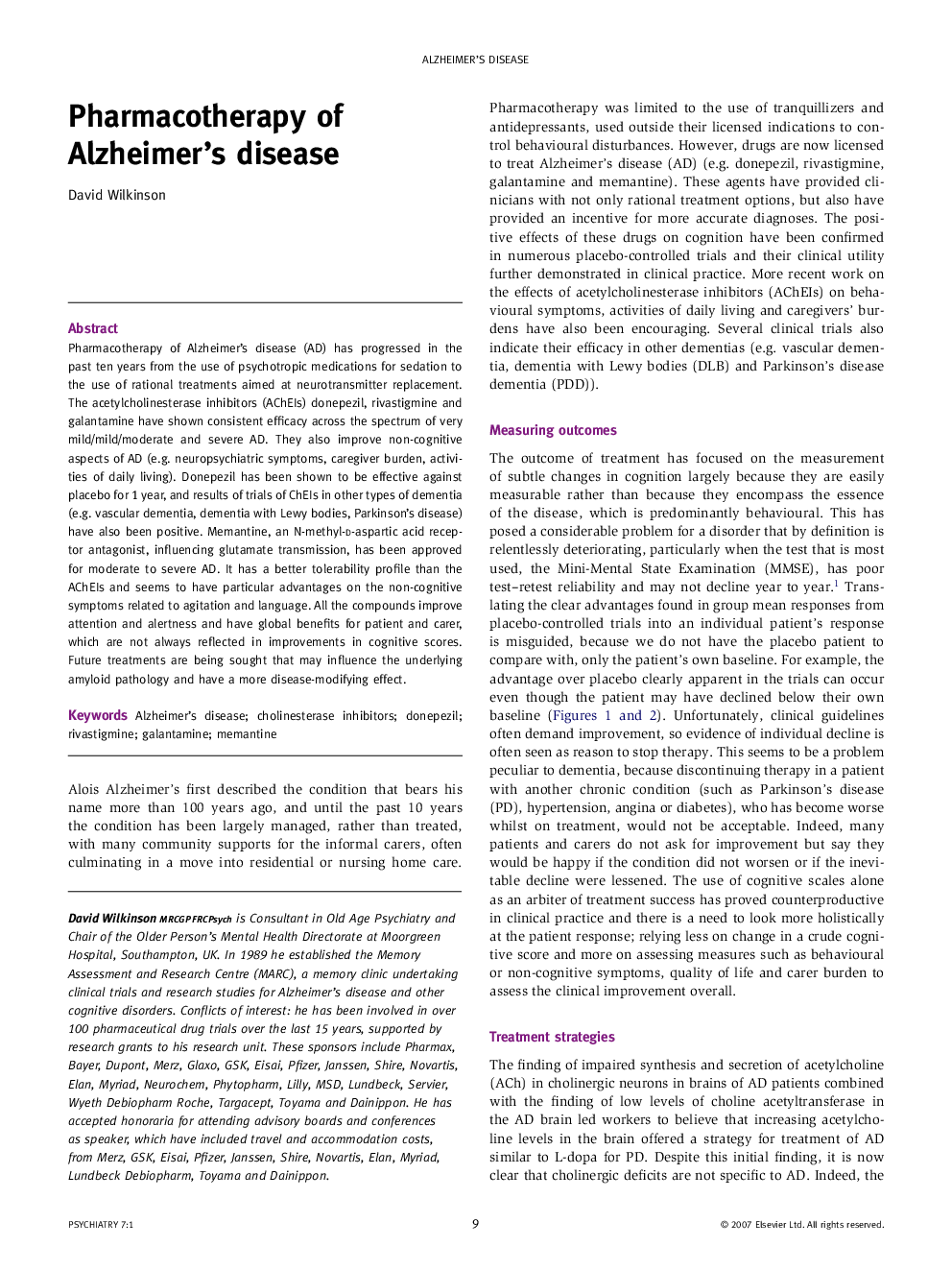| Article ID | Journal | Published Year | Pages | File Type |
|---|---|---|---|---|
| 4190075 | Psychiatry | 2008 | 6 Pages |
Pharmacotherapy of Alzheimer’s disease (AD) has progressed in the past ten years from the use of psychotropic medications for sedation to the use of rational treatments aimed at neurotransmitter replacement. The acetylcholinesterase inhibitors (AChEIs) donepezil, rivastigmine and galantamine have shown consistent efficacy across the spectrum of very mild/mild/moderate and severe AD. They also improve non-cognitive aspects of AD (e.g. neuropsychiatric symptoms, caregiver burden, activities of daily living). Donepezil has been shown to be effective against placebo for 1 year, and results of trials of ChEIs in other types of dementia (e.g. vascular dementia, dementia with Lewy bodies, Parkinson’s disease) have also been positive. Memantine, an N-methyl-d-aspartic acid receptor antagonist, influencing glutamate transmission, has been approved for moderate to severe AD. It has a better tolerability profile than the AChEIs and seems to have particular advantages on the non-cognitive symptoms related to agitation and language. All the compounds improve attention and alertness and have global benefits for patient and carer, which are not always reflected in improvements in cognitive scores. Future treatments are being sought that may influence the underlying amyloid pathology and have a more disease-modifying effect.
